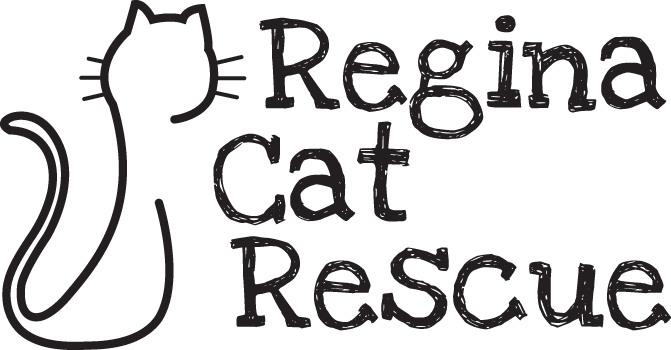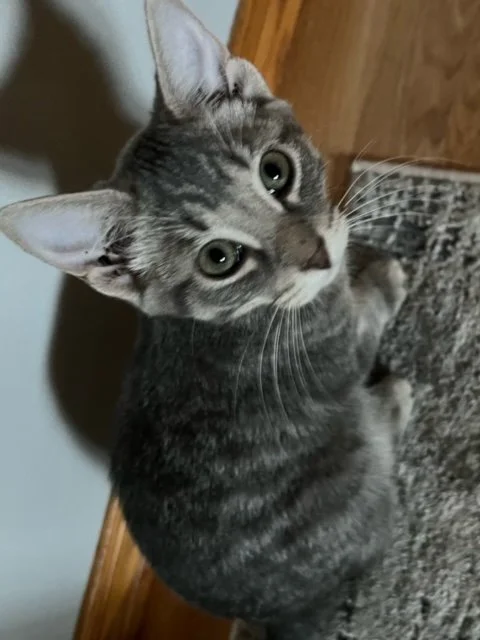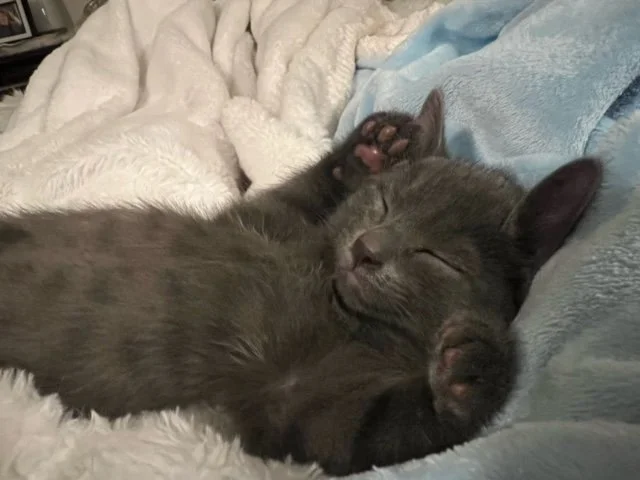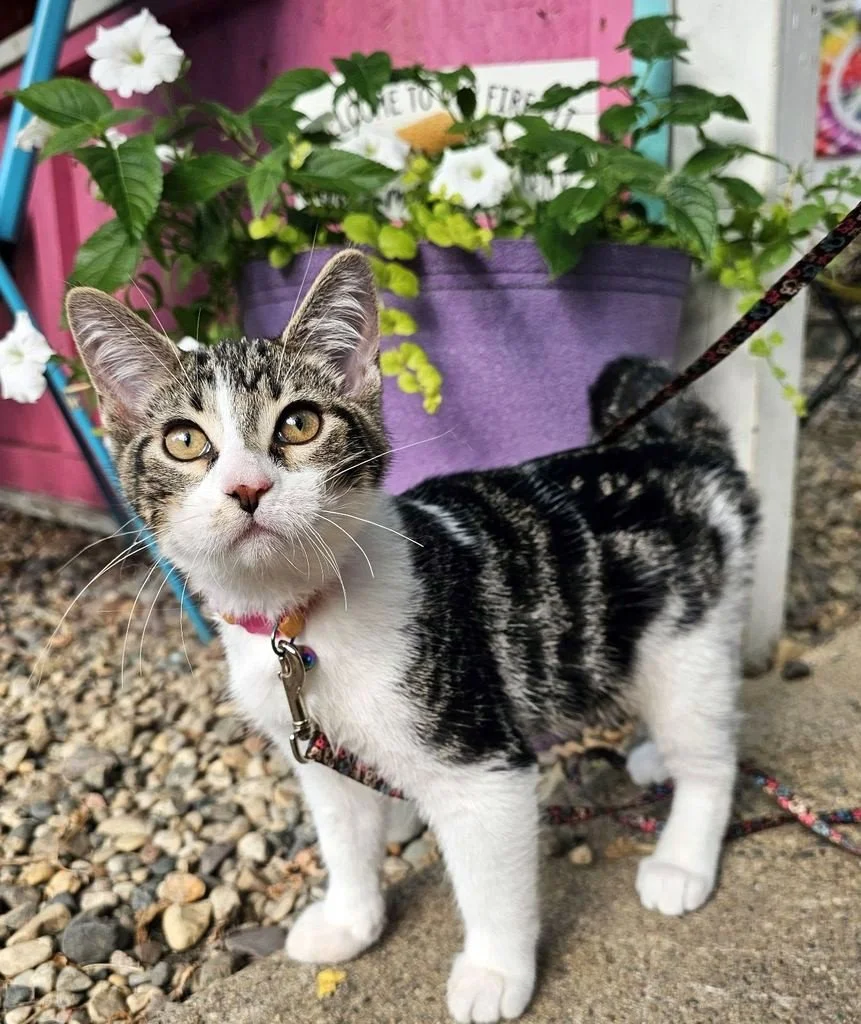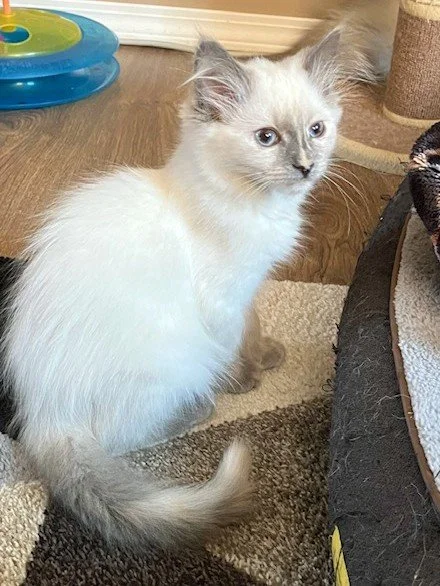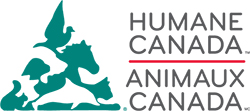Group looks out for feline families
/
Adrian Alleyne, The Leader-Post
Published: November 13, 2008
A local group has discovered a new homeless group in downtown Regina, but it isn't what you think.
People For Animals of Saskatchewan (PFA) Inc. is a non-profit, volunteer-based organization that works to help animals that are living on the street. Recently it discovered a new cat colony in the downtown area near a group of buildings that will soon be demolished.
"Our goal when we discover a colony is to support them, offer them food, water and shelter," said Sarah Pump, head of communications for PFA.
"Also to sterilize them, because you can't just feed cats, because if you just feed cats then they just reproduce and the next thing you know it's just making the problem worse. So our focus always when we discover colonies is to sterilize."
The organization focuses on three approaches. One is education; the PFA promotes sterilization within the community and awareness of animal issues. Second, it focuses on pet rescue and supporting people in the community when they find a lost animal, Pump said.
The third approach is a team for feral cats -- adult animals which have never had contact with humans.
"Our feral-cat team is a group of volunteers who go out daily, and we have feeding stations throughout the city," said Pump.
"We also have well-established cat colonies throughout the city as well. There's a lot of them in North Central, we have some in the Warehouse District, and now we have discovered this colony downtown.
"The cat colonies tend to be comprised of cats that have been born outside; they've never been handled by humans, they're not interested in being house cats."
The PFA isn't affiliated with the Regina Humane Society, but both organizations have similar goals of saving the lives of vulnerable animals.
Pump said the PFA is supportive of the humane society and the city's Animal Protection Services, but the cat crisis is at such a high level in Regina that there is a need for all of these organizations to work on this problem.
Although the PFA deals mainly with cats, it deals with other animals as well, including dogs, guinea pigs and hamsters.
"We'll deal with any companion animal, (but) the reality is that, in Regina, the crisis is cats. Right now, we do have four dogs that are in foster care and are up for adoption, but we have about 30 cats," said Pump.
The PFA relies heavily on the community in order to continue these services. It's looking for donations of cat food or cat litter, individuals to provide foster homes for animals, or even money. Anyone interested can also sign up as a member on the Web site for $25, with the money going toward the care of cats.
"The more members we have, the wider our scope is and the more we can get the word out," added Pump.
For more information on how to volunteer or donate, visit the PFA Website at or e-mail badbunnygirl@hotmail.com.
Published: November 13, 2008
A local group has discovered a new homeless group in downtown Regina, but it isn't what you think.
People For Animals of Saskatchewan (PFA) Inc. is a non-profit, volunteer-based organization that works to help animals that are living on the street. Recently it discovered a new cat colony in the downtown area near a group of buildings that will soon be demolished.
"Our goal when we discover a colony is to support them, offer them food, water and shelter," said Sarah Pump, head of communications for PFA.
"Also to sterilize them, because you can't just feed cats, because if you just feed cats then they just reproduce and the next thing you know it's just making the problem worse. So our focus always when we discover colonies is to sterilize."
The organization focuses on three approaches. One is education; the PFA promotes sterilization within the community and awareness of animal issues. Second, it focuses on pet rescue and supporting people in the community when they find a lost animal, Pump said.
The third approach is a team for feral cats -- adult animals which have never had contact with humans.
"Our feral-cat team is a group of volunteers who go out daily, and we have feeding stations throughout the city," said Pump.
"We also have well-established cat colonies throughout the city as well. There's a lot of them in North Central, we have some in the Warehouse District, and now we have discovered this colony downtown.
"The cat colonies tend to be comprised of cats that have been born outside; they've never been handled by humans, they're not interested in being house cats."
The PFA isn't affiliated with the Regina Humane Society, but both organizations have similar goals of saving the lives of vulnerable animals.
Pump said the PFA is supportive of the humane society and the city's Animal Protection Services, but the cat crisis is at such a high level in Regina that there is a need for all of these organizations to work on this problem.
Although the PFA deals mainly with cats, it deals with other animals as well, including dogs, guinea pigs and hamsters.
"We'll deal with any companion animal, (but) the reality is that, in Regina, the crisis is cats. Right now, we do have four dogs that are in foster care and are up for adoption, but we have about 30 cats," said Pump.
The PFA relies heavily on the community in order to continue these services. It's looking for donations of cat food or cat litter, individuals to provide foster homes for animals, or even money. Anyone interested can also sign up as a member on the Web site for $25, with the money going toward the care of cats.
"The more members we have, the wider our scope is and the more we can get the word out," added Pump.
For more information on how to volunteer or donate, visit the PFA Website at or e-mail badbunnygirl@hotmail.com.
